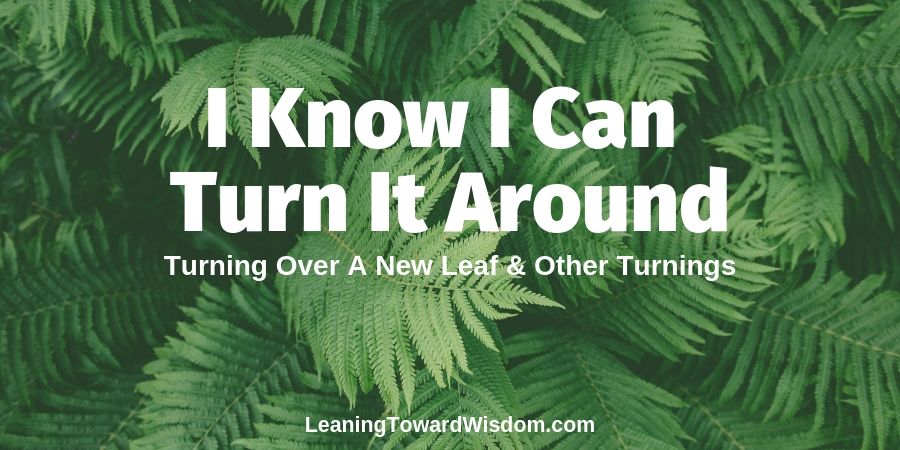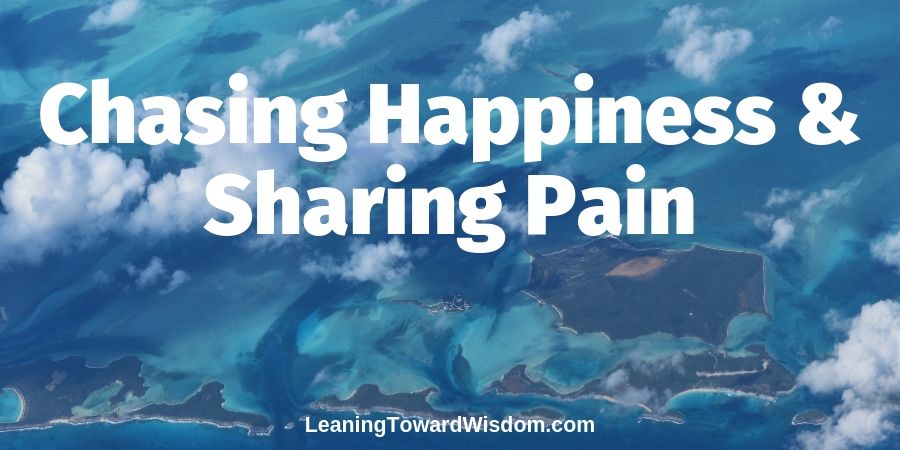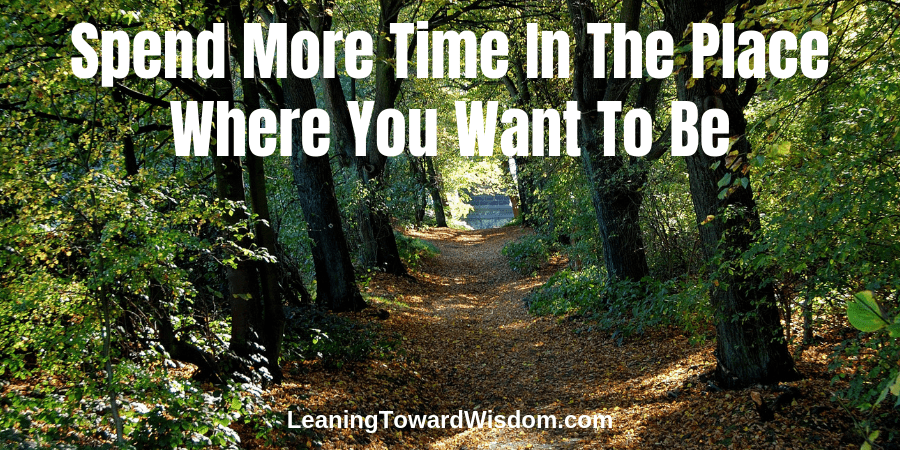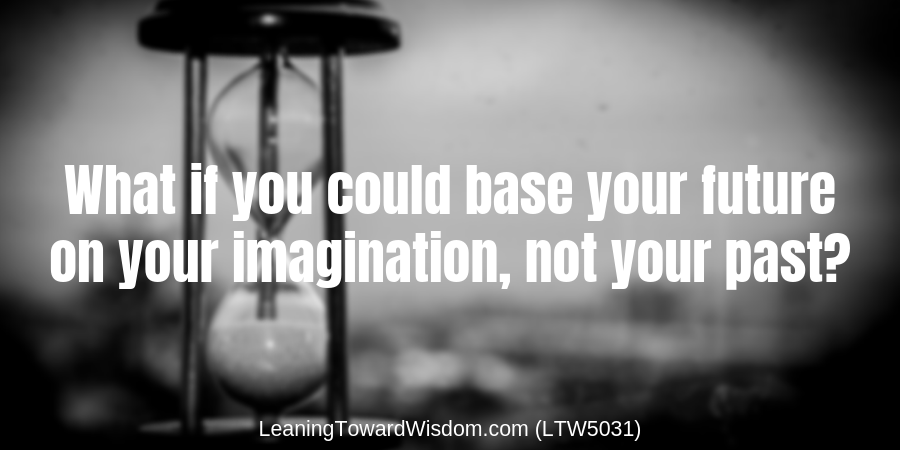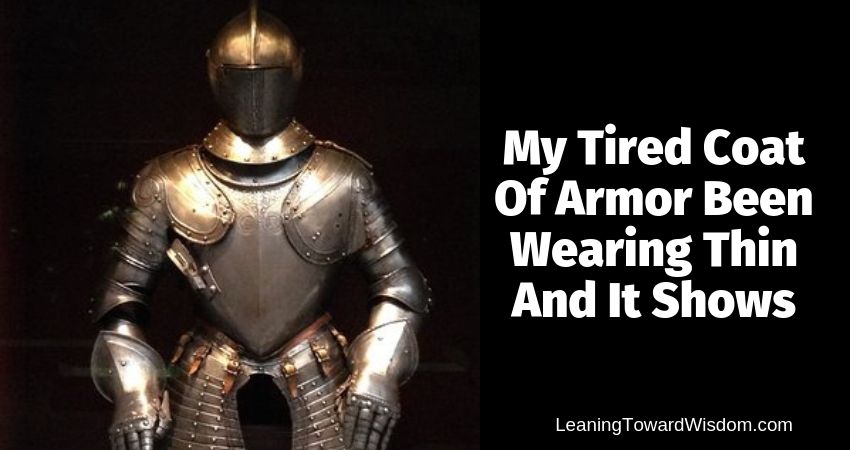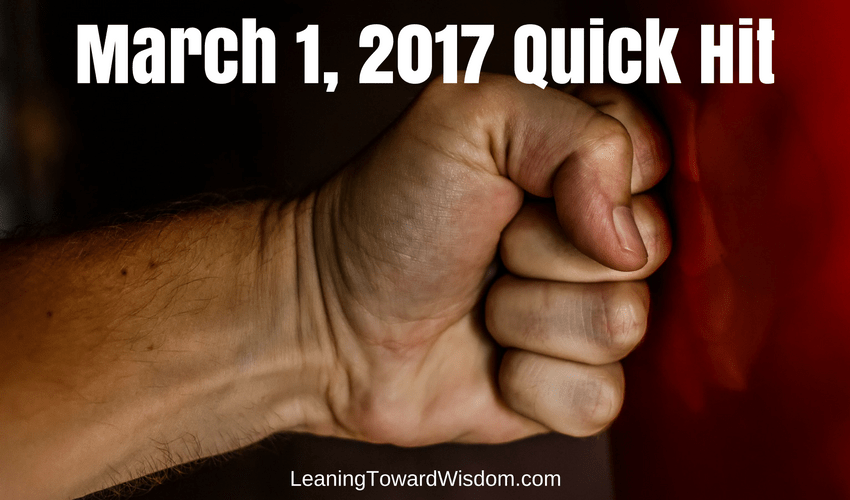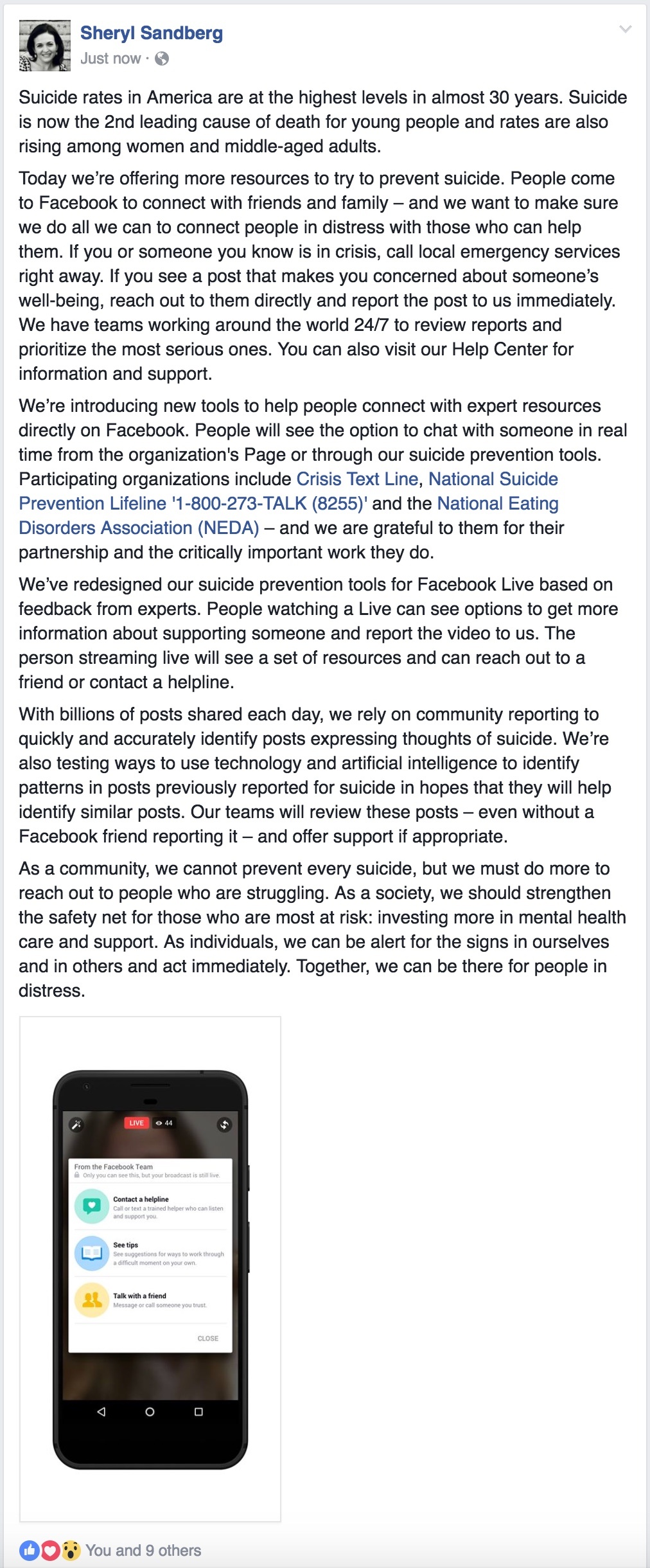I Know I Can Turn It Around (Turning Over A New Leaf & Other Turnings) – LTW5036
Podcast: Play in new window | Download (Duration: 43:00 — 49.4MB)
Subscribe: Apple Podcasts | Spotify | iHeartRadio | Email | RSS | More
According to the book by Dan Pink, Drive: The Surprising Truth About What Motivates Us, research shows that the secret to high performance isn’t our biological drive or our reward-and-punishment drive, but our third drive—our deep-seated desire to direct our own lives, to extend and expand our abilities, and to live a life of purpose.
Pink also reveals a new approach to motivation that has three essential elements: (1) Autonomy—the desire to direct our own lives; (2) Mastery—the urge to get better and better at something that matters; and (3) Purpose—the yearning to do what we do in the service of something larger than ourselves.
Dr. Alan R. Zimmerman’s book, Pivot: How One Turn In Attitude Can Lead To Success, provides a 9 step attitude revolution to help the reader:
- Evaluate your status quo
- Choose your mental strategy
- Curb the negativity blocking your success
- Improve your confidence
- Build stronger relationships
- Experience an instant boost in enthusiasm
- Make every day a successful day
- Stop worrying
- Overcome failure
I can’t (well, I could, but I don’t want to) count the number of books I have that preach a message of positive change, making a mental turn toward a more positive life and taking steps to climb out of failure so you can achieve success. If words would do it, I’d have done it decades ago. If words would do it, you’d think I’d expand the podcast and release daily episodes. But you’d be wrong. 😉 We need words. Encouragement. But we need something more. Much more.
Do you know why thousands of books are published each year on dieting, health, and fitness? Well, sure. Because it’s one of the biggest selling markets on the planet, but why is that? Why do people buy these books in droves?
For starters, most are likely searching for the magic bullet. The one trick that will finally provide the answer they’ve looked for all their fat out-of-shape lives! They’ll keep looking until they find something that sounds easy enough for them to try. And if it works, “Eureka!” If not, they’ll keep looking at those new releases.
Others aren’t keeping an eye peeled on the books published. Timing is right and today, they’re driven to search out an answer for their circumstance. Like a guy driving to work without a care in the world – especially no concern about his tires – they weren’t looking at these books before today. But on his way home, he has a blowout. Now, he’s very interested in tires. Twenty pounds later, in a scale staring epiphany a person decides, “Man, I’ve got to get a grip on my weight!” Now, they’re looking at the various books.
Maybe it’s all timing. Timing of the message. Timing of reception of the message. And let’s not discount how the message is delivered. Spend some time at YouTube and if you’re old like me, you won’t hear much new, unless it’s technology-based. All the expert testimony about human behavior is the stuff I grew up reading and hearing. And it wasn’t new then either.
Ecclesiastes 1:9 “That which has been is what will be, That which is done is what will be done, And there is nothing new under the sun.”
Indeed. There’s not much new under the sun when it comes to human behavior and what we chase. Or even in how we chase it.
As for books…
Ecclesiastes 12:12 “And further, my son, be admonished by these. Of making many books there is no end, and much study is wearisome to the flesh.”
Truer still. Books and books and more books. Largely a regurgitation of very ancient maxims wrapped in new clothing. I can buy a new suit, but it’s the same old body underneath.
Sometimes we likely look like the apostle Paul did to Festus in Acts 26:24 “Now as he thus made his defense, Festus said with a loud voice, “Paul, you are beside yourself! Much learning is driving you mad!”
I may be mad, but it’s doubtful due to too much study. 😉 It’s entirely possible though to read too much. To study about it too much. To think about it too much. Again, there’s a critical component missing.
Fat folks want to turn it around.
People lost on the highway need to turn it around.
Procrastinators need to turn over a new leaf and stop putting things off.
People who have lost their way absolutely need to turn it around.
Largely we’re a bunch of critters headed in the wrong direction. Needing to turn it around. Even high achievers sometimes get themselves turned around, going in the wrong direction.
Which begs the question, “Why is it so easy to go the wrong way?”
Here in the big city we occasionally encounter roadway disasters, largely at the hands of drunk drivers. They somehow maneuver onto the highway going the wrong direction. Sometimes they can be safely stopped without incident. Others times they cause a tragic head-on collision that takes lives. The sober among us question, “How in the world did they manage to get their car onto the highway via an exit ramp?” No matter. They did. A skill best performed when the human mind is out of control I suppose. Maybe that’s the key to all this going the wrong way. We’re out of our minds!
Quite possible.
“I know I can turn it around.” I’ve said that to myself before. Only to prove to myself and others that I was wrong. I can’t. Well, to be fair. I didn’t. Maybe I could have. I just couldn’t figure out how. Or I couldn’t figure out how soon enough to show myself and others.
Do you ever say that to yourself? Or hear somebody else say it?
“I know I can turn it around,” is really a rather empty statement if you stop to consider it. First of all, the reason we say it is because we need to turn it around. Perhaps we’ve been going in the wrong direction for a very long time. Now, for some odd reason, we’re going to make this declaration – a bold, seemingly courage-filled declaration – that we KNOW we can turn it around.
How do we know that?
It’s not because we’ve done it before. Truth is, all we’ve done so far is proven how capable we are of driving in the wrong direction. We’ve got that down cold. But this turning thing? What makes us think we can do that?
It’s like whistling in the dark. We make such statements hoping to build up the courage and whatever else we need to get it turned around. It being our life. Or some specific pursuit we’re failing to catch.
Kids try something and fail, then as soon as an adult attempts any effort at coaching, the kid makes the bold claim, “I can do it. I can do it.” Well, we’ve sat here watching you struggle for 10 minutes. Maybe you’re a bigger idiot than you thought. Maybe you should stop and let us try to help you. Nope. “I want to do it on my own.” Fine. Ten more minutes of failure ensues. Maybe they get it. Maybe they don’t. Maybe they quit after proving to themselves, “I thought I could, but I was wrong. I can’t.” Such moments can become life-defining.
It’s the reverse of the little engine that could. It’s the little engine that couldn’t. Far more little engines can’t than can. Stubborn, uncoachable engines determined to show us. Ultimately giving up showing us they can when they at long last figure out, “No, I can’t.”
It weakens the resolve of most. Cripples many. Only the most resilient move on and don’t let it impact their life. Or their confidence. Some learn to accept help. Most don’t. That’s only my observation and experience. I reserve the right to be wrong. And to admit I can be jaded. 😉
A lifetime (however long that may be) of going the wrong way provides what evidence that we can turn it around?
I understand the importance of belief and confidence. In fact, just about every day I’m telling somebody “they’re everything.” And I don’t think I’m far from wrong. I’ve seen genuinely confident people with lower levels of competence far out-perform superior competency with low confidence. Don’t assume knowing is the same as doing. It’s not. Hence all those diet books that are written, published and sold. With new authors and experts entering the space daily. And new customers entering hourly.
I’ve lived long enough to have learned that if I could grant myself or those I love most one human quality that may likely fuel greater success…it would be confidence. I’m not talking about making them braggarts. Or pompous, arrogant obnoxious humans. I’m talking about gifting them quiet confidence best described as an inner belief.
“I know I can turn it around,” isn’t the declaration of a person who has that. It’s the declaration of a person who is trying to find that. It’s the admission of a person that they lack it and that’s the very thing helping them go in the wrong direction. Like the drunk driver entering the exit ramp, it’s insanely easy when you’re not thinking clearly. Those of us who are sober look at that onramp and realize that you’ve got to maneuver your car in the most awkward positions to make it happen. Sobriety is like wisdom. And confidence. Drunkenness is like foolishness, insecurity, and doubt.
I’m a big believer in words. The verbiage matters. Especially the words we tell ourselves. So I completely understand the self-talk and the outer talk manifested by it to make the statement out loud, “I know I can turn it around.”
I also know what I most mean when I say it. I’m NOT declaring quiet belief – a true inner belief – that I can. Rather, I’m asking the person to whom I’m making the declaration to express their belief in me. Because I don’t have enough.
It’s false bravado. Nothing more.
And I think that’s universally true. For everybody who does the same.
Sometimes people may respond, “Of course you can.” But that doesn’t help. Come on. I don’t believe what I’m saying to myself. Why do you think I’m gonna believe YOU? 😀
It’s a process we try. Just like the little kid trying something and failing. Over and over. Until they figure it out. Or until they give up and quit. Fruit flies live 40 – 50 days. Cheerleading lasts that many seconds. At most. That’s why it doesn’t work. It’s not a deep enough expression of belief to make a lasting impact.
Does reasoning work? It can. There are no guarantees. I know this much. Without evidence or strategy, we’re just wishing, not hoping.
Hoping isn’t the same as wishing. Most people do lots of wishing. And I’m cynical enough to think most people – at the very least, MANY PEOPLE – are rather hopeless. Especially when it comes to people in their life. Perhaps even with their own lives.
There are some people I love who are living foolishly. Destructive and wasteful lives. I can’t say I have hope because I have no influence or impact on their lives. Nothing is happening to provide hope. But I’m filled with wishes. I wish circumstances would come their way to cause them to rethink their current path. I wish they’d come to themselves and wisen up. It’s nothing more than a wish.
If they were taking actions to turn it around, then I’d have hope. Hope that their actions and resolve would benefit them. But until their mind is made up to turn it around, and until they begin to take some actions to demonstrate their mind is made up — I’ll have to restrict myself to wishing, not hoping.
This is a big and important topic because every human life experiences it. The words we ascribe to the feelings are dreaming, wishing and hoping. We too often use those terms interchangeably, but they’re not the same. Not even close.
Dreaming. Dreams.
fantasies about something greatly desired
Every child does it. Easily. Some of us can maintain it into adulthood.
They’re useful because they speak to something we “greatly desire.” Don’t our accomplishments stem from that? Of course. We set out to learn and perform things we really desire. So dreaming can certainly have a positive impact and add fuel to our pursuits. Or they can remain fantasies we decide aren’t worthy of our efforts. We’d just rather fantasize about having them.
Wishing. Wishes.
a strong desire or hope for something that is not easily attainable; want something that cannot or probably will not happen
I’m taking issue with the insertion of the word “hope” in that definition, but I understand the usage.
Why is it a wish? Not because of our strong desire, but because of the practicality of it. It’s not easily attainable. It can’t happen or probably won’t happen.
Dreams can serve a positive purpose to fuel action. Wishes can’t. They don’t serve us or anybody else. We just hold them because they may feel good for us. Feeling good doesn’t result in doing anything productive though. No turning happens because of wishing.
Hoping. Hopes.
want something to happen or be the case; intend if possible to do something
Dreams have desire that may or may not spark action.
Wishes have desire incapable of doing anything.
Hopes have desire with intentions. Something is being done to make it so.
These are critical feelings and words because they speak to our making needed turns. Sadly, we likely lean more into the first two feelings, which may provide answers for why we don’t turn things around more often. Or more easily. We’re stuck dreaming and wishing, both feelings that lack one important ingredient – ACTION.
Turn is a verb. An action word. Sure, we make the turn first in our head and we’ve talked about that before. Few things are as powerful as a mind made up. It’s getting to that point that’s tough. Making up your mind to turn around can be very difficult.
Once you make up your mind to do it, then you’ve got to put in the work to figure out how to go about it. Scenario planning in our head can cause us to quit before we ever turn the steering wheel. Doubt and fear interrupt our best-laid plans. “What if it doesn’t work?” is a real concern. Nevermind that we’re still going in the wrong direction and that it’s highly unlikely we’ll veer into an even more wrong direction. Our thoughts can paralyze us from moving the wheel at all.
None of it is very logical.
Or practical.
Or likely.
But still we’re filled with fear and doubt.
People who overthink hear the constant admonition, “Stop overthinking it. Just do it.” It’s like telling a fat person, “Be thin. Stop being fat.” Easy for you to say. You’re thin. Guess why you’re thin! Because you don’t suffer the slow metabolism or lack of confidence the fat guy suffers from. And rich folks don’t suffer the maladies that come from poverty either.
Enter empathy (understanding) and compassion (doing something with that empathy). You only know what YOU know. The fat guy understands what it is to be fat. But he can judge the thin guy just as easily as the thin guy can judge him. Neither may understand the other. Or their plight. It takes work to do that. Work that too many aren’t willing to put in. Easier to just call you a name and be done with it.
Meanwhile, back inside the head, our brains are firing on all cylinders convincing us this may never be possible for us. So we verbalize our desire hoping to spark within us some newfound remedy called confidence. Belief.
“I know I can turn it around.”
Translation: “I’d like to, but I’m not sure I can. I’m more sure it won’t be able to in spite of the fact I really think I want to.”
Hope is not a strategy, but it’s born of a strategy. Without hope we’re living nothing more than fantasies, dreaming and wishing we were somebody or something different. Better.
Hope is needful. Useful. Necessary.
The key is to move from dreaming and wishing to hoping. That means you’ve got to deploy some actions. You have to do something. And it can’t be the same thing you’ve been doing. At least not if you want a different result. And you do, or you wouldn’t be thinking of turning it around. Or turning over a new leaf. You’d happily keep living under the same leaf if it was doing for you everything you most wanted. But it’s not. You’re dissatisfied. Or perhaps miserable.
Only when we’re sick and tired of being sick and tired so we normally DO something different. That’s why major events provoke the most substantial changes. The guy with a horrible diet and poor fitness gets a wake-up call when he’s rushed to the ER with chest pains. A survivable heart attack wakes him up. The doctor tells him what he must do to save his own life. He’s now open to what the doctor tells him. Last week, not so much. Today, his whole world view is different because he’s scared. Scared enough to DO SOMETHING he’s never done before. Defeat or failure isn’t an option. His mind is fully made up. He’s GOING TO TURN IT AROUND. And now.
Years later he may tell everybody he knows how this heart attack was the very best thing to ever happen to him. Without it, he’d likely have continued his poor behavior and died of a massive, unsurvivable heart attack.
But still we wait. For the blowout on our car. Or the heart attack. Proactive change – turning over a new leaf without provocation is hard. Winds of change help.
But we’re not leaves. Leaves lack the ability to turn themselves. We’re not so powerless. We can change at will. In an instant.
If we will.
We largely don’t because we don’t think we can. We may feel like we’re nothing more powerful than a leaf. So turning never happens. Not because we don’t need to, but because we think somebody has the wheel. Hello, victim!
Feeling sorry for ourselves is super effective. Not in helping us turn it around, but in helping us remain stuck. Or lost. Or worse.
Taking action helps. Even if it’s the wrong action, which is only evident by taking action. Otherwise, there’s no way to find out if what we’re doing is the right thing or not. Turning the wheel is the only way to change direction.
In the absence of courage or confidence, we ought to try diving headlong into hope. Real hope. The kind of hope that relies on doing something worthy of it.
Perhaps that’s a key consideration. Leaning so far into hope that we understand it’s just a dream or a wish until we take action. Sometimes I catch myself using a phrase, “meaningful action.” But I’m coming to believe that meaningful action is only evidenced by taking any kind of action.
Just today I engaged in a conversation to encourage somebody. He’s pursuing an opportunity. He’s a little bit nervous and anxious. My role? Encourager. So I set about to help increase his confidence.
He’s a business guy and we both know business problems are solved by first making an assumption. Not a false assumption necessarily, but an assumption of some sort. We survey the situation, gather whatever evidence is readily available and then we begin to work out a solution. Working out the solution means we don’t begin with the entire known universe. We begin with whatever assumptions we can make based on the evidence at hand. The real work now begins as we work to determine if our assumptions are correct or not. The only way to find out is by acting on our assumptions and making adjustments along the way. The only way to measure our assumptions is to act on them.
That’s how our lives work, too. The only way to figure out what works is to try stuff. But we’re not out here behaving willy-nilly without any direction. Like business people who look at a problem, gather evidence then make an assumption to give them a starting point…we should do the same thing.
Business people competing in the market don’t have the luxury of sitting around wishing things were better. We’ve got to busy ourselves making them better. Or our businesses die.
So I reviewed the evidence of his qualifications to successfully pursue and seize this opportunity. We walked through my assumptions based on the evidence of his experience, skills, and credentials. I presented compelling evidence for the assumptions. He couldn’t deny my conclusions and said he agreed. Does it mean we’re right? Only one way to find out. Test them by chasing the opportunity with an intensity based on the belief that we’re correct.
What’s the worst thing that can happen?
Because we can travel lost for our entire lives…we sometimes don’t turn it around. Going in the wrong direction dramatically impacts the quality of our lives, but doesn’t likely affect us in a deathmatch. Although it could (drunkenness, drug addiction, gambling addiction, criminal behavior, etc.).
Permit another scripture…
Ecclesiastes 8:11 “Because the sentence against an evil work is not executed speedily, therefore the heart of the sons of men is fully set in them to do evil.”
Because things don’t change instantly we get complacent and fixated on continuing to do what we’ve always done. Sure, we hope for an improved outcome, but mostly we crave the comfort of the known. For many of us, that comfort trumps an improved result. The direction we know, even if it’s wrong, is comfortable. So we keep going.
We’re accustomed to facing this specific direction. Nevermind that a different direction would help us grow. Or give us a much-improved view. We’re comfortable facing this way because we’ve been facing this way all of our lives.
How can we yearn more for a new direction? How can we be driven enough, curious enough to carve a new path, even if it’s one we’ve never experienced?
Logically we know everything we’ve ever learned began with enough curiosity or courage to try something we’d never done before. Sometimes – I dare say, MOST TIMES – it worked out well. Sometimes VERY WELL.
Maybe the research Dan Pink referred to is important. That 3rd drive —our deep-seated desire to direct our own lives, to extend and expand our abilities, and to live a life of purpose. But does it exist to the degree it should so it can help us turn it around? That’s entirely up to us. And only us. Sure, others can encourage us, but nobody can do this for us.
It could be the desire isn’t deeply-seated enough.
It could be we’re not that interested in extending and expanding our abilities.
It could be we lack purpose.
Those are big variables in the equation. Any single one of them could wreck us in turning it around.
“I wish I was different, better,” might be the lamentation of your life. Today, I just want to help you make one change – one shift in how you frame your life. Stop wishing. Stop dreaming. Instead, HOPE.
Hope things are different and better. Remember, hope needs a basis – some evidence. That’s where you make a big difference. You do things that will provide you with hope. Take some action. Turn the wheel in a different direction. Pay attention. Did the turn benefit you? Are you now heading more toward your desired outcome? If so, then keep going or turn a bit more and see if it takes you closer or further away from the goal. Keep adjusting until you get it turned around.
“You cannot swim for new horizons until you have courage to lose sight of the shore.” ― William Faulkner
Swimming is required. Turning. Actions are taken because of your strong desire to control your own life.
As Jack Welch, former chief of General Electric was fond of saying…
Control your own destiny or somebody else will.
Randy
I Know I Can Turn It Around (Turning Over A New Leaf & Other Turnings) – LTW5036 Read More »
